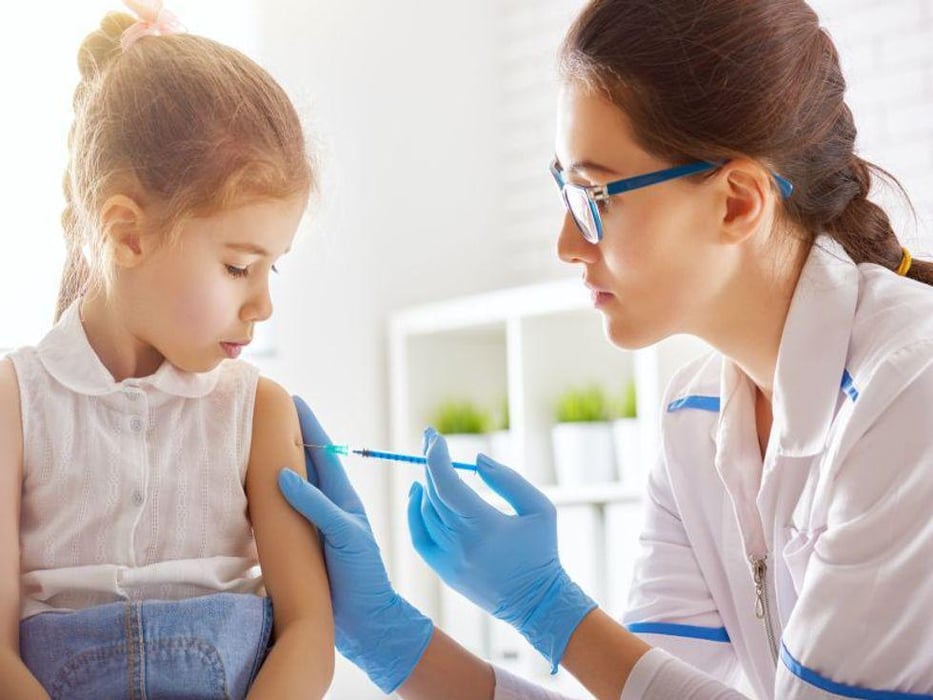Two-Thirds of Parents of Kids Ages 5-11 Plan to Get Them Vaccinated Against COVID: Poll

FRIDAY, Oct. 15, 2021 (HealthDay News) -- In some heartening news on the vaccine front, two-thirds of American parents of children ages 5 to 11 plan to get their youngsters vaccinated when COVID-19 shots are approved for that age group, a new survey shows.
"While we're encouraged to see that a majority of parents intend to vaccinate their children against COVID-19 once they are eligible, there is clearly more work to be done to help address parents' questions and ease concerns about the vaccines," said Beth Battaglino, CEO of HealthyWomen and an organizer of the COVID-19 Vaccine Education and Equity Project, which conducted the survey.
"Reaching people where they are, listening and working with trusted community voices to help instill confidence in the vaccine development, and [the] regulatory approval process is crucial to combat hesitancy and ensure that all families are equipped with the latest vaccine information to make an informed decision," Battaglino said in a project news release.
The poll of more than 1,000 parents of children ages 5 to 18 also found that parents' vaccination status was a major factor in the likelihood of getting their child vaccinated and their support for vaccine requirements.
Overall, 60% of the respondents supported schools requiring eligible children to get a vaccine to attend school in-person. Rates were 78% among vaccinated parents and 86% among parents of children ages 12 to 18 who have already been vaccinated.
A majority of parents in the West (69%), Northeast (63%), and South (60%) supported in-school vaccination requirements, but support was only 48% among parents in the Midwest.
Overall, 77% of parents were at least somewhat worried that their child could get COVID-19, but that varied depending on the parent's vaccination status and the age of the child.
While 42% of vaccinated parents were "very worried" their child could get COVID-19, the rate was only 29% among unvaccinated parents. About 42% of parents of children ages 5-11 were "very worried," compared with 31% of parents of children ages 16-18.
There were also differences by region and race.
Nearly half (49%) of parents in the South were "very worried" about their child getting COVID-19, compared with 32% of those in the Northeast, and 30% of those in the Midwest and West.
More Black (49%) and Hispanic (47%) parents were "very worried" about their child contracting the virus than white parents (33%).
The major reasons why unvaccinated parents of school-aged children said they haven't been vaccinated are concern that the vaccines were developed too quickly (63%), worry about potential side effects (57%), and wanting to wait for more information (48%).
Those reasons are the same they gave for why they haven't, or don't plan to, have their child vaccinated.
Parents of unvaccinated children ages 12 to 18 said the major factors that might convince them to vaccinate their children include: school requirement (25%); full approval by the U.S. Food and Drug Administration (23%), or someone in their household at high risk (23%).
The survey was conducted Sept. 22-28 and released Oct. 14 by the COVID-19 Vaccine Education and Equity Project, which includes more than 225 organizations that include patients, health care workers, scientists and others.
More information
The American Academy of Pediatrics has more on COVID-19 vaccines.
SOURCE: COVID-19 Vaccine Education and Equity Project, news release, Oct. 14, 2021
Related Posts
Binge Drinking in Middle Age: Has ‘Wine Mom’ Culture Gone Too Far?
FRIDAY, June 23, 2023 (HealthDay News) -- It's an image you see everywhere on...
Los pacientes negros con tumores en el cerebro tienen menos probabilidades de una cirugía que los blancos
VIERNES, 9 de diciembre de 2022 (HealthDay News) -- Los pacientes negros con...
Una ley de Florida prohibiría enseñar a los estudiantes de primaria sobre la menstruación
MIÉRCOLES, 22 de marzo de 2023 (HealthDay News) -- Un proyecto de ley propuesto...
